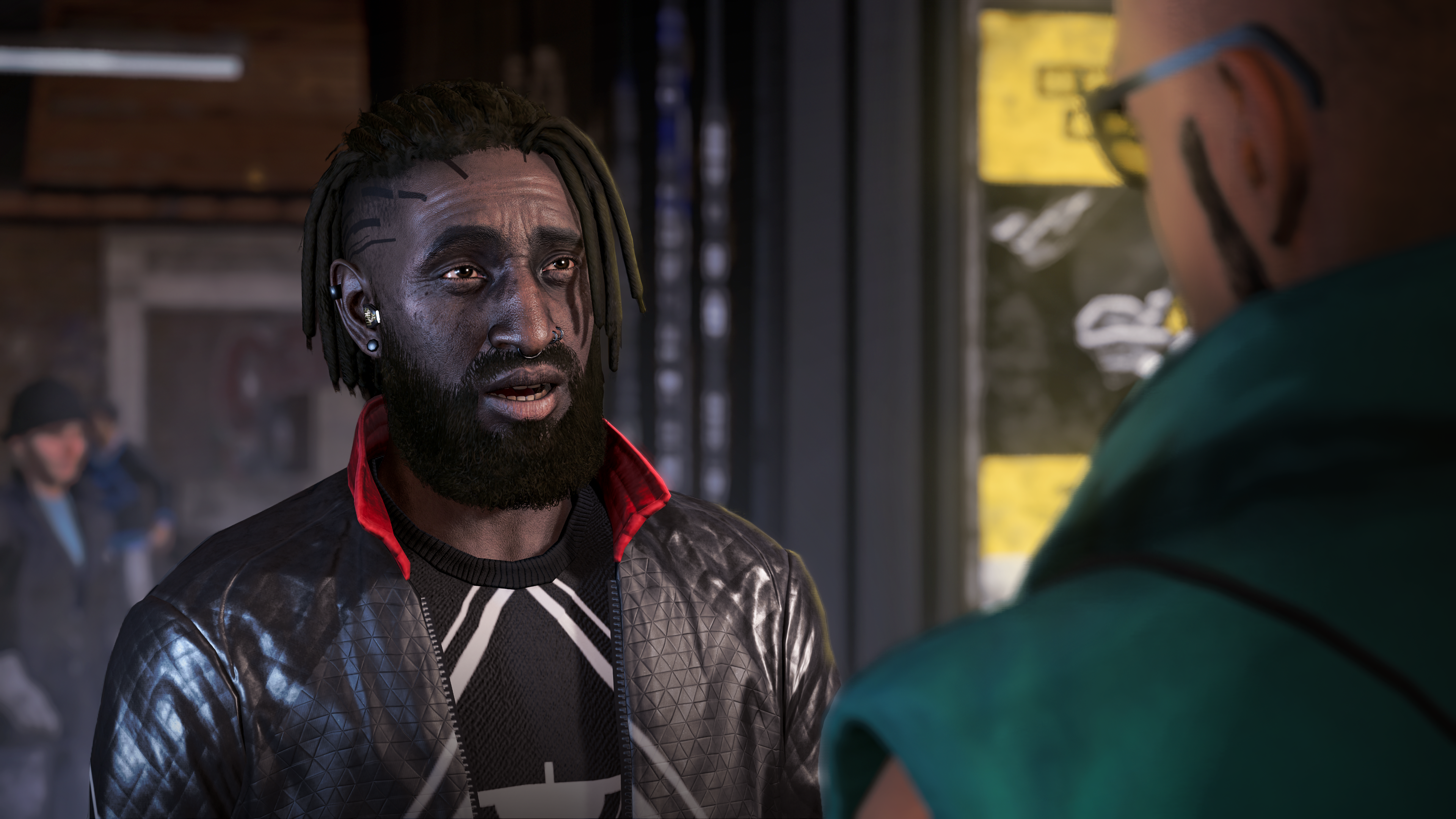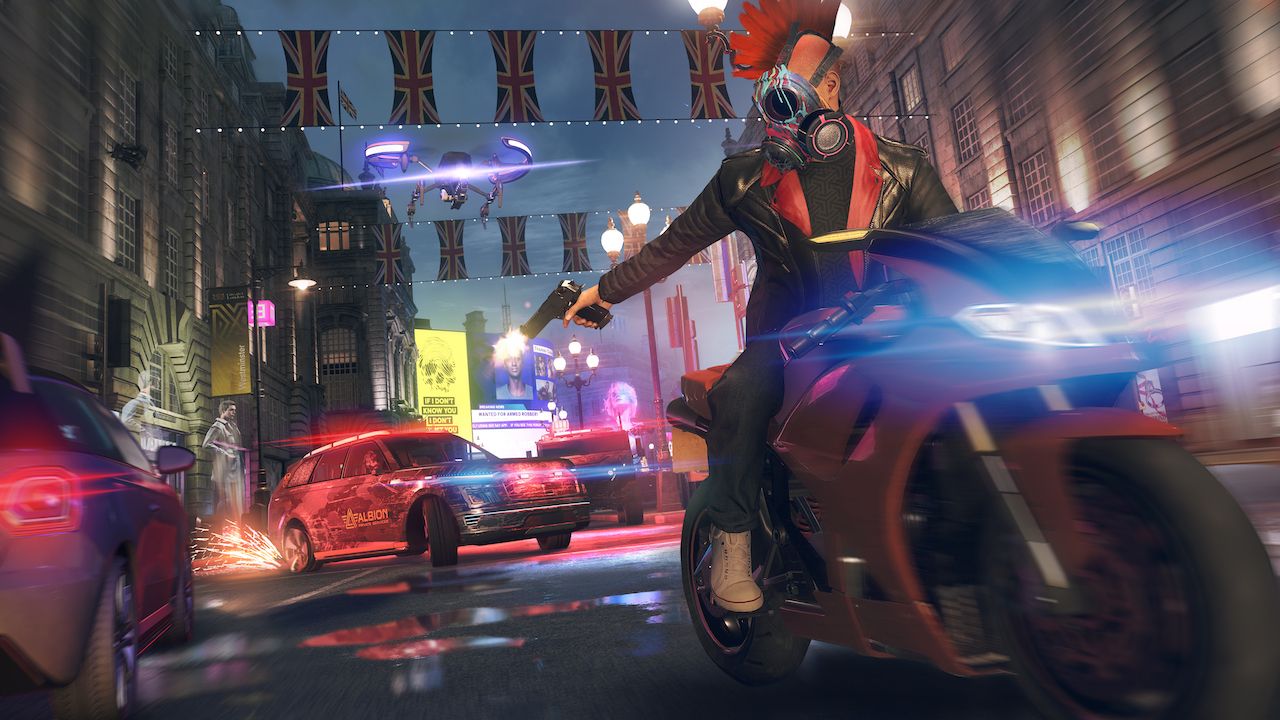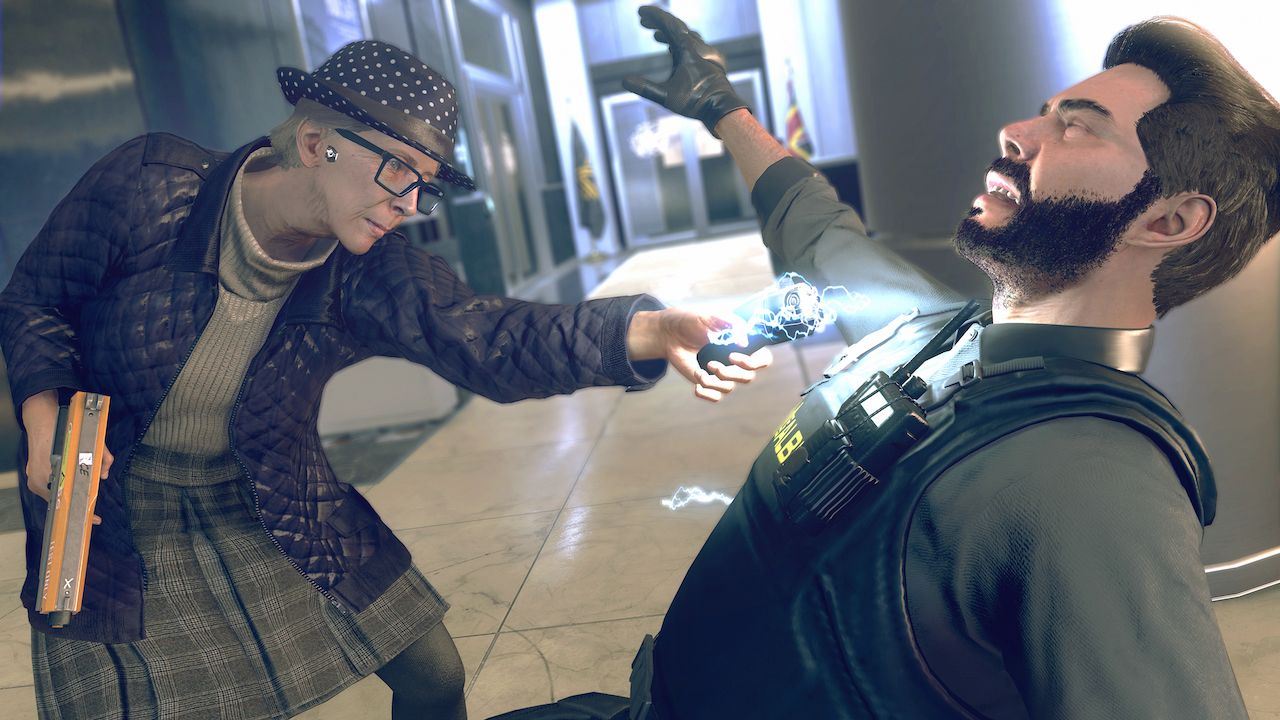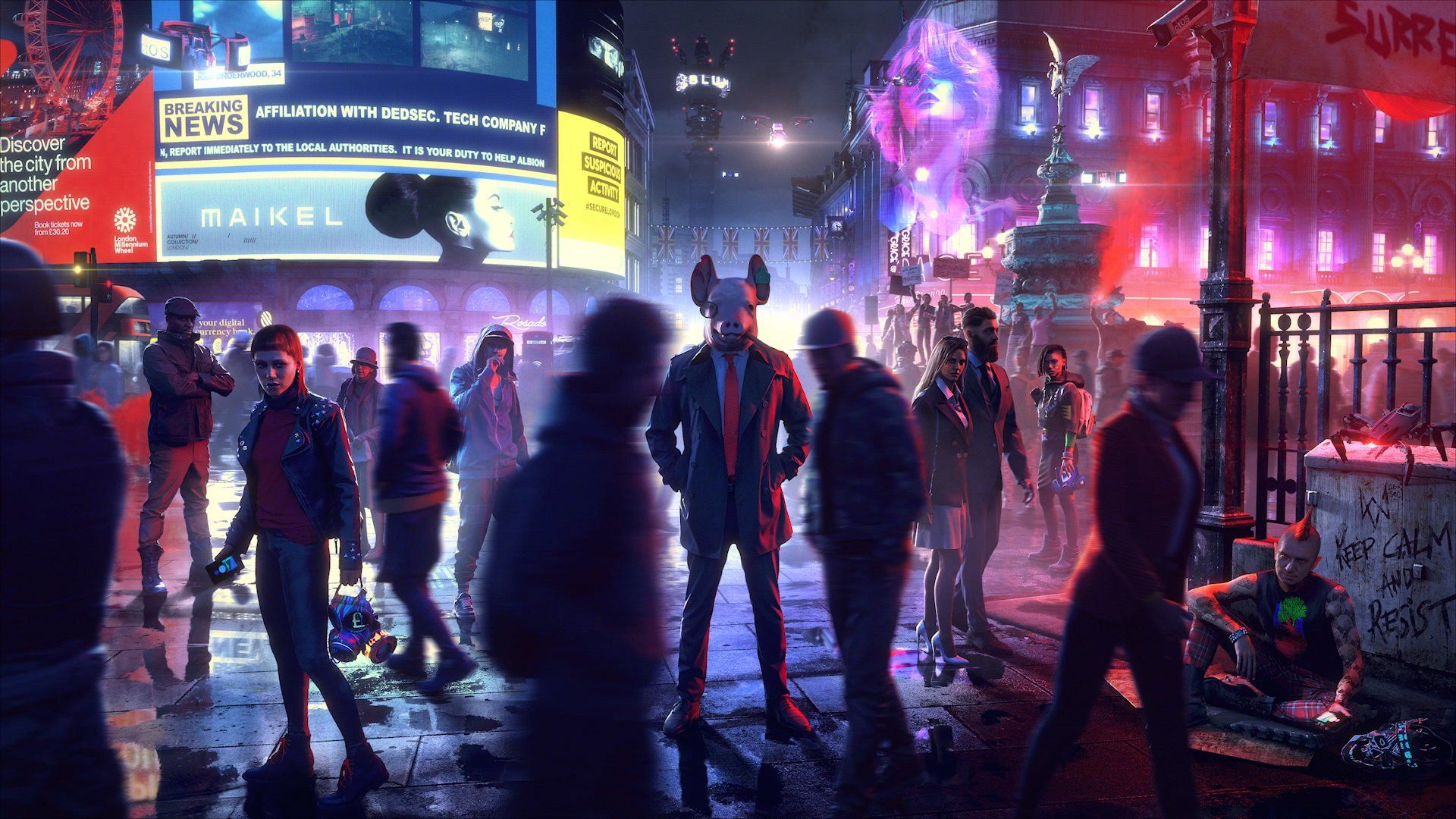After I able to get my hands on the upcoming Watch Dogs: Legion and dive into the open world myself (you can check out my preview of the game here), I was able to speak with Ubisoft Toronto lead producer Sean Crooks in a brief but very enlightening interview. We discussed the size and scope of London, permadeath mode, how real world politics shaped the story and gameplay, and more.
Allisa James: How large is the new map (London) compared to San Francisco from Watch Dogs 2 and Chicago from Watch Dogs?
Sean Crooks: So while the map, if you compare it, is about as large as the other two cities, it’s far denser. There’s way more locations such as parks, government buildings, and other landmarks than San Francisco and Chicago, which was a huge challenge to incorporate and recreate. There’s a lot more content in London, much more to see and do.
AJ: How much influence have real world politics surrounding Brexit and other countries had on the world building in Watch Dogs: Legion?
SC: Quite a bit; even now with everything that’s going on in the world, we wanted to reflect that and the idea of fighting against systematic oppression, of banding together and citizens combining their efforts to overthrow this oppressive entity. We felt that it was our responsibility to reflect these real world events in a game like Watch Dogs and even now as we’re developing the game, there are still current events happening that we need to incorporate into the final product, and some that we can’t even fit in at this time.
[pullquote]"Even now as we’re developing the game, there are still current events happening that we need to incorporate into the final product, and some that we can’t even fit in at this time."[/pullquote]
AJ: What made you and the Watch Dogs: Legion team decide to go in this narrative direction, as well as the gameplay mechanic of playing and recruiting anyone?
SC: In the original Watch Dogs we had this main character with his own unique narrative and inner demons who went against these huge mainstream corporations. And so for Legion, we wanted to expand that idea; like, "how do we incorporate an entire population into this fight against mainstream corporations?" In the game you can see each character's profile and history, and so it leads into how all these people would use their unique abilities and skill sets to fight back, and reflect how all these people with different lives and personalities would deal with this situation and would fight back against this system.
For instance, there’s a system in the game that lets you see where they work and what they do for a living. You can see what’s going on in their lives and how you can help them with their abilities, which is one of the ways you can recruit them.
[pullquote]"Not every character is a perfect ally, but some have traits that can make things more difficult even in non-permadeath mode."[/pullquote]
AJ: And what were some of the challenges involving the development of this system?
SC: This was easily one of the biggest technical challenges that we faced. Because each one of these characters not only have their unique backstory but occupation, skillset, a unique mission to recruit them, and history. Not only that, but they also have unique hairstyles, cosmetics, clothing, voices, and other characteristics. And we had to manage this function of having millions of millions of characters being generated. So the next challenge is how to manage this system while ensuring that these generated NPCs reflect London’s population and feel like people in London.
AJ: Whether in permadeath mode or not, there are some characters who are more likely to die or a trait leading to sudden death. Why was this implemented and what scenarios or traits could lead to death even in a non-permadeath playthrough?
SC: In Watch Dogs: Legion we wanted to make it realistic, that some people would have certain traits that could make things more difficult once you fulfill certain requirements or conditions. Not every character is a perfect ally, but some have traits that can make things more difficult even in non-permadeath mode, whether it’s dying at a certain point or some other characteristic that puts them in more danger while on dangerous or high risk stealth missions.
We had a lot of fun with making challenges using characters with certain restrictions like this, like making it through levels with characters who had traits involving flatulence or hiccups and trying to stealth high security areas. And so players could do the same--create their own challenges--and we already had players create challenges themselves. For instance, there was one in which you recruit only elderly people and beat the entire game that way.
[pullquote]"The next challenge is how to manage this system while ensuring that these generated NPCs reflect London’s population and feel like people in London."[/pullquote]
AJ: Accessibility is a huge part of Watch Dogs: Legion; how more diverse are the options available within the game in comparison to other Ubisoft games, or the previous Watch Dogs titles?
SC: Well this was something that we were really passionate about, and I think to date this Ubisoft game has some of the strongest accessibility experiences. And that was something very powerful. I felt very strongly about what was needed to address the options available in our game and in the end, our team was very proud of what we were able to accomplish and how we created something like this for our community. I was very happy that the team worked so hard and was able to develop such strong accessibility options.
Watch Dogs: Legion will release for PS4, Xbox One, Google Stadia, and PC on October 29, followed by its release for Xbox Series X/Series S on November 10 and PS5 on November 12.




